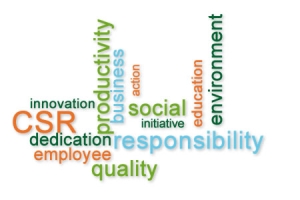General Objectives
 Supporting the social responsibility of SMEs and at the same time increasing competitiveness, innovativeness and productivity.
Supporting the social responsibility of SMEs and at the same time increasing competitiveness, innovativeness and productivity.
Sustainable promotion of equality between women and men, equal opportunities and participation of the elderly.
Strengthening international cooperation of vocational training institutions among themselves as well as with universities.
Increasing the attractiveness and quality of vocational further education.
Concrete Objectives and Outputs
Course concept with a curriculum as an innovative process in vocational training, which provides participants with essential skills such as personal responsibility, innovation and cooperation ability, communication skills, identification, participation, etc..
A developed manual, as well as further education regulations in German, English and Polish.
Training of staff, lecturers and consultants of project partners, as well as further transfer partners (Train the Trainer).
Official further training regulations are developed for Germany, which include competence reviews on the basis of EVCET, in order to provide transparency and ensure international recognition and transfer of skills.
Tasks of the Project
Step 1: The experiences and best practices concerning the promotion and development of CSR in the involved countries is analysed and evaluated, especially the successful paths and experiences in Norway and Sweden. The existing training modules concerning CSR sub-

Step 2: On this basis, a comprehensive, modularised CSR further training concept is developed specifically for SMEs and tested in practice in Germany and in Poland with 15-
Step 3: Official further education regulations are developed, which include competence ratings on the basis of ECVET Basis, which provides transparency and ensures international recognition and transfer of competences.
Step 4: Then a CSR manual for SMEs will be developed in German, Polish and English and transferred to the total of 45 chambers, 15 colleges from all Baltic States which will permanently offer them to SMEs from their region.
Results
Tested CSR course concept with all documents (curriculum, teaching and learning materials, etc.) in German, English and Polish
Manual for the CSR application in SMEs in German, English and Polish
Concept of international recognition of further education qualifications in the Baltic Sea Region in German, English and Polish
2 television broadcasts in Germany
Flyer of the CSR further education course in German and Polish
